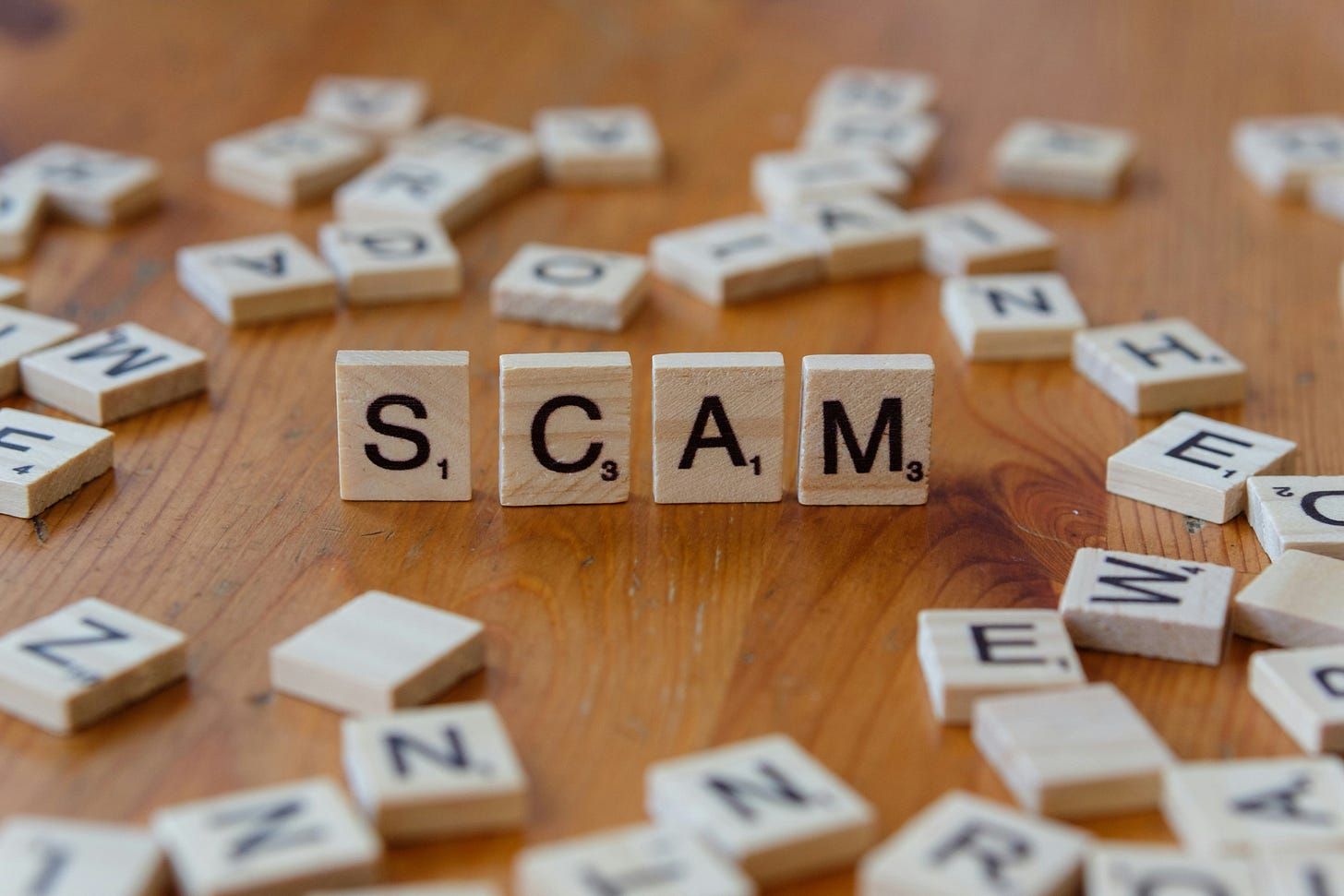If you have been around authors long enough it is not long before you hear a tale of a writer scammed out of thousands of dollars (plus a fair slice of pride) by a vanity press posing as a blue-chip traditional publisher. The pitch is polished, the logo looks familiar, and the promises sound like shortcuts to a bestseller.
Yet the shine fades the moment the contract lands in your inbox. Here are the warning signs that surface again and again in Reddit cautionary tales and on the Writers Beware® “Thumbs-Down” list, along with simple ways to protect your wallet and your rights.

The irresistible “marketing package”
The glossiest bait is a bundle of services priced anywhere from $2 000 to $12 000. The offer usually includes press releases, social-media blasts, and a “guaranteed” slot at a major book fair. In reality, most of that money buys little more than a listing in a seldom-read catalogue. Legitimate publishers earn by selling books to readers, not by selling services to authors. If a company asks you to pay for marketing up front, stop. Collect two independent quotes from freelance publicists (Reedsy.com is an excellent database of professional publishing professionals) so you have real benchmarks.
The compulsory ISBN upsell
In the United States you can buy a block of ten ISBNs directly from Bowker for $295 (or one for $125). Vanity presses often insist you purchase their “custom” ISBN for several hundred dollars each, then list themselves as the publisher of record—handing them long-term control over your metadata. Always purchase your own ISBNs and register your name or imprint.
The guaranteed bulk-order mirage
Scammers dangle phantom orders from big-name bookstores, often tied to an extra distribution fee or a required buy-back of a few hundred paperbacks. Real retailers never place large orders before a book is printed and reviewed, and unsold stock is almost always returnable at the publisher’s expense. Ask for a written purchase order on store letterhead; you will usually hear excuses instead.
The exclusive book-fair showcase
Another lure is a promise that your novel will appear at Frankfurt, London, or BookExpo—if you pay a four-figure “display fee.” At best, your cover will sit on a shared shelf in a rented booth staffed by someone who has never read your book. You can register to attend most fairs yourself for a fraction of the cost and network with rights buyers directly.
The lifetime rights grab
Hidden deep in many vanity contracts is a clause granting the company worldwide, all-formats rights in perpetuity. Sign that and you cannot sell your own audiobook, large-print edition, or foreign translation without their permission. A fair contract limits rights by territory, format, and time—often three to five years—with a clear reversion if sales fall below a stated threshold.
The 48-hour pressure cooker
Legitimate publishers work on the timetable of legal review, not panic. If a salesperson says the offer expires in two days—or that you will “miss the catalogue deadline”—take it as a cue to slow down. Ask the company for a list of authors you can contact. Refusal is another red flag.
The vanishing company name
A quick web search often reveals the same directors have operated under several previous imprints, each with a trail of complaints. Check corporate filings on the U.S. SEC’s EDGAR system or your state’s business registry for name changes. Look up the domain’s WHOIS history and search Writers Beware for aliases. If the pattern looks like a shell-game rebrand, walk away.
Here’s a table of the most often-cited tactics, gleaned from the r/selfpublish and r/selfpublishing Subreddits:
Your three-step safety drill
Search Writers Beware
Type the company name plus “Writers Beware” into your browser. No result is neutral; a detailed warning is a deal-breaker.Ask for itemised quotes
Legitimate service providers break down editing, design, and marketing costs line by line. A single lump-sum figure hides inflated margins.Run the contract past a professional
In the U.S., join the Authors Guild or ALLi (Alliance of Independent Authors) for contract review; in the U.K., the Society of Authors offers a similar service. One clause caught early can save years of regret.
Vanity presses thrive on secrecy, urgency, and a writer’s eagerness to see a book in print. Shine a bright light on every promise, verify every claim, and you pull the plug on the scam. Share these red flags with your writing circle and keep the Writers Beware link handy. An extra hour of due diligence today can spare you thousands of dollars and many sleepless nights tomorrow.
If you’d like to support my work but are not in a position to commit to a monthly subscription, consider buying me a coffee.




